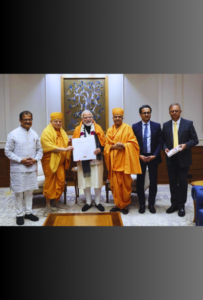

Rahul Gandhi’s second major yatra, the aptly named “Bharat Nyay Yatra” (March for Justice), takes to the road on January 14th, 2024. This ambitious trek aims to traverse 6,200 kilometers across 14 states and 85 districts, culminating on March 20th. But the burning question lingers: Is this a genuine pursuit of justice for India’s citizens, or a strategically timed political maneuver ahead of the 2024 Lok Sabha elections?
On the surface, the yatra’s focus on “economic, social, and political justice” aligns with noble ideals. The Congress party promises it will highlight issues like rising prices, unemployment, growing inequality, and threats to democracy. Engaging with diverse communities across the country allows Rahul Gandhi a platform to directly hear their concerns, understand their struggles, and amplify their voices. This grassroots connection could potentially resonate with voters disillusioned with the current government.
However, skepticism hangs in the air. Critics point to the timing of the yatra, coinciding neatly with the election cycle. They argue that it’s more of a calculated campaign strategy than a genuine quest for justice. The extensive media coverage, party mobilization, and carefully curated optics of the yatra are undoubtedly aimed at boosting the Congress’s electoral prospects.
Moreover, questions remain about the yatra’s impact beyond symbolism. Can a 60-day march across a vast and complex nation truly address deeply entrenched systemic issues? Will real solutions emerge from these interactions, or will the yatra fade into memory after March 20th, leaving only campaign slogans and photo-ops in its wake?
For Rahul Gandhi, the “Bharat Nyay Yatra” presents a high-stakes gamble. Success may revitalize the Congress party and offer him a credible platform to challenge the ruling BJP. However, failure could further dent his political image and solidify the perception of him as a mere campaigner, not a leader focused on real change.
Only time will tell whether the “Bharat Nyay Yatra” lives up to its noble intentions or succumbs to the cynicism of political theater. Regardless, it promises to be a fascinating social and political spectacle, sparking discourse and raising crucial questions about justice, democracy, and the future of India.





